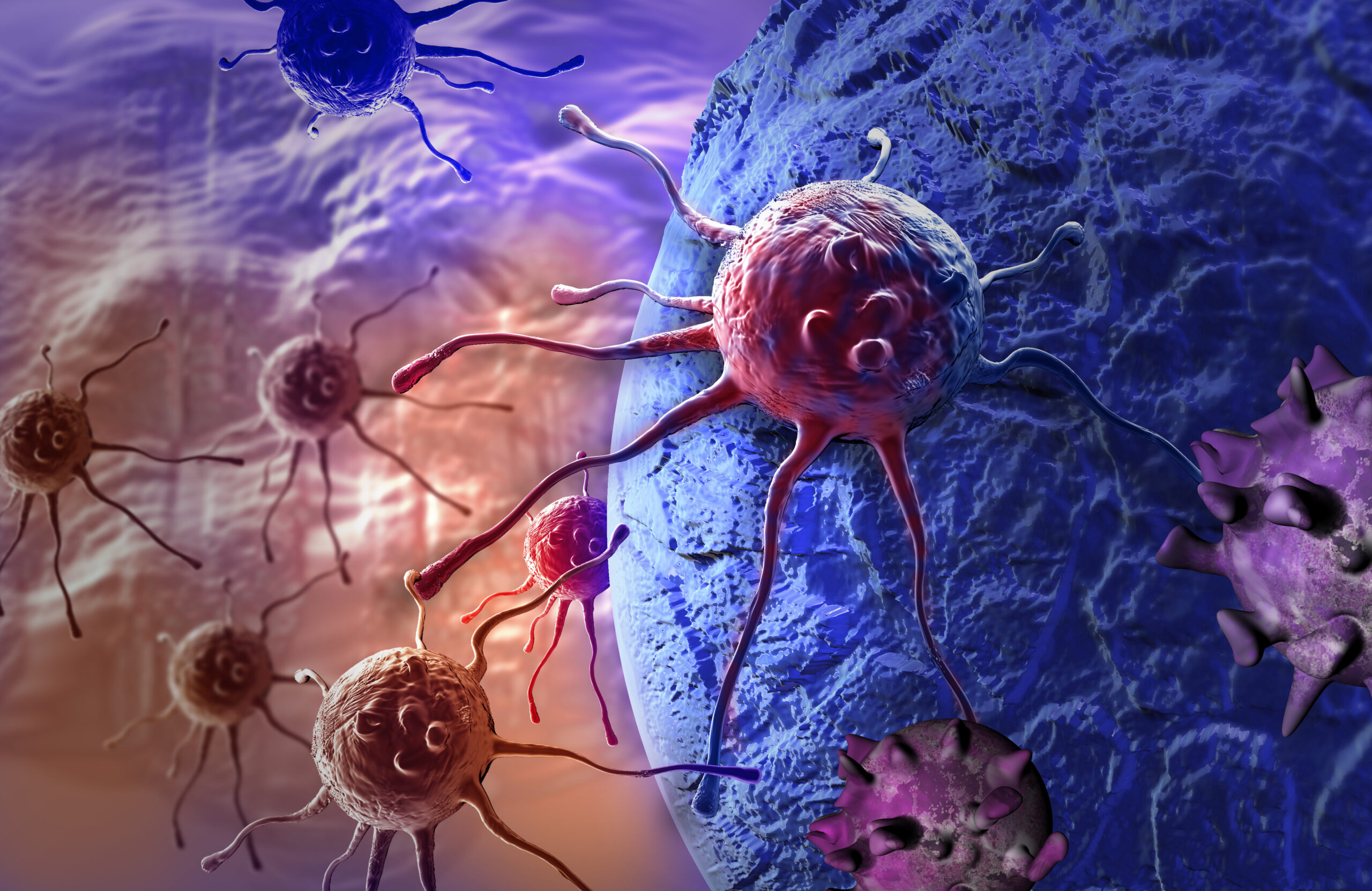There are currently over 700 drugs for treating cancer in the late stages of development, but have you ever wondered how these drugs are really treating cancer? First, it’s important to look at how cancer develops. A factor that causes cancer is changes in the genes that produce proteins important for cell growth. While there are many such genes, the BRAF gene in particular provides instructions for a protein that helps other proteins send signals in cells for growth and replication. A mutation in the BRAF gene means cells keep getting signals to multiply without stopping, causing uncontrollable growth of cancer cells. BRAF mutations have been found in some types of cancer such as melanoma, colorectal cancer, and ovarian cancer. One specific mutation is called “BRAF V600E”, meaning that the valine (V) at amino acid position 600 is replaced with a glutamic acid (E), a seemingly small change that still results in tumor-developing activity. The BRAF V600E mutation is the most common type of BRAF mutation and accounts for about 90% of BRAF-mutant cancers.
Fortunately, drugs such as dabrafenib have been developed to slow down or even stop the overactive cancer cell growth caused by BRAF mutations. Another common way to treat cancerous growth is with a MEK inhibitor drug such as trametinib, which inhibits mitogen-activated protein kinase (MAPK) enzymes that are also overproduced in cancers. Although each of the drug types could be used alone, the effects of these drugs when used together had not been extensively explored, although combining different approaches to treating tumors is constantly being studied by cancer scientists. In June, pharmaceutical company Novartis received accelerated approval from the FDA to use the brand name drugs Tafinlar, a dabrafenib, and Mekinist, a trametinib, in combination to treat patients with metastatic solid tumors with the BRAF V600E mutation.
Cancer cells can spread throughout the body from their original site of development, which is called metastasis.
Image source: koto_feja
Tafinlar + Mekinist is currently the only BRAF/MEK inhibitor drug with approved usage in pediatric patients. It is also the first and only therapy to be approved with a “tumor-agnostic indication“. This means the drug treats cancer based on the cancer’s protein or gene profile, and not the type of cancer or where it started in the body, allowing it to be used in many cases of cancer. In this case, the BRAF V600E mutation is targeted since BRAF mutations have driven cancer growth across a wide range of solid tumors. Based on clinical trials so far, even patients with rare cancers have shown improvement with Tafinlar + Mekinist.
The combination of Tafinlar + Mekinist may help slow tumor growth by blocking the signals associated with BRAF mutations. This allows physicians to consider a BRAF test when diagnosing patients with solid tumors to provide them with a new treatment option. Overall, cancer is complex, but new approaches to treating cancer continue to be developed. With this first step in developing drugs with tumor-agnostic indication, hopefully, there will be a day when every cancer will be curable!
Featured Image: vitanovski










